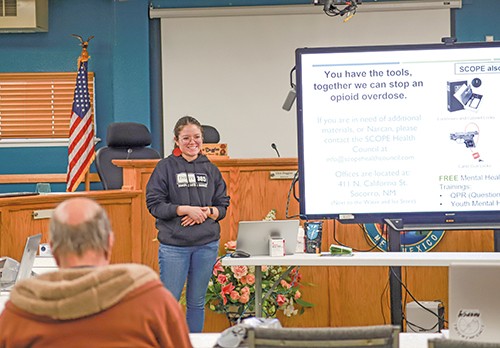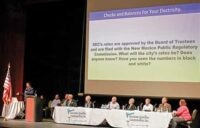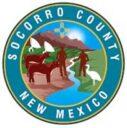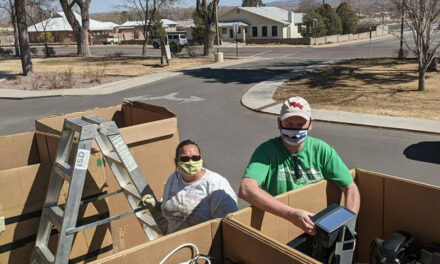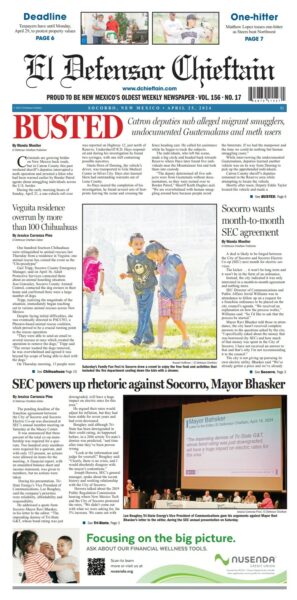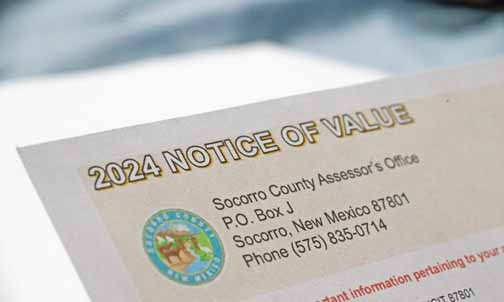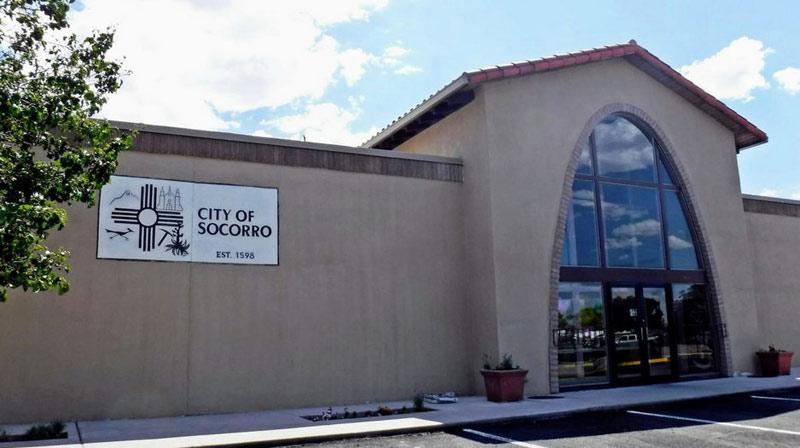With the significant rise of overdose deaths in the community, it became a priority for Socorro County Options, Prevention and Education to offer free Narcan training to local organizations, businesses and community members.
Veronica Espinoza, data analyst and harm reduction specialist for SCOPE health council, believes that Narcan training is not only empowering but lifesaving.
“Narcan training in Socorro County was started due to an increase in youth overdoses and a lack of access to naloxone, which is the generic form of Narcan,” Espinoza said.
According to the 2022 NM Substance Use Epidemiology Profile, Socorro County had an overdose death rate of 30.7 per 100,000 people between 2016-2020.
“We saw an increase in overdose deaths during the pandemic. The whole state is being affected. According to the NM Department of Health, there were 1,029 deaths due to drug overdose in New Mexico in 2021. To put that in context, one New Mexican died from drug overdose about every 8.5 hours. Out of those overdose deaths, 70% of them involved an opioid,” Espinoza said.
At the trainings, community members are taught how to recognize an opioid overdose, how to respond to an opioid overdose and how to administer Narcan.
According to Espinoza, a common misconception is that only people who misuse substances, whether it be prescription medication or illicit substances, are at risk of an overdose.
She said that the older adult population is sometimes overlooked as a population that could be at risk of an opioid overdose. Even if older adults take their opioid medication exactly how their doctors prescribe it to them, they are still at risk of an overdose, “Anyone using opioids, whether prescribed or illicit, are at risk for an overdose. It’s important for every household to have Narcan readily available but also feel confident in administering it in case of an emergency.”
Espinoza said it’s also important to convey to the community that opioid misuse, just like any other substance misuse, can be a sign of a mental health crisis and stressed the importance of mental health.
“Addiction is a public health issue, not a criminal one, and we should meet these individuals where they are,” Espinoza said.
Another dangerous misconception about Narcan is that it does not work on Fentanyl, which is not true.
“Narcan is an opioid antagonist, which means that it can reverse opioid overdoses and fentanyl is an opioid. The caveat with fentanyl is that since it is very potent and fast acting, giving Narcan quickly is critical in saving a person’s life,” Espinoza said.
At each training session, each participant is provided with a resource bag that has a box of Narcan, medication disposal kits, and mental health and substance misuse resources. The resource bag is funded by the NM Department of Health Overdose Prevention grant and the Partnership for Success grant. Because it may require two doses of Narcan to reverse a fentanyl overdose, every box contains two doses.
Last year SCOPE gave out 589 boxes of Narcan and so far, this year they have done several community Narcan Trainings in Magdalena and Socorro with more scheduled.
Community members can go to the SCOPE office to pick up a free box of Narcan and be trained in how to use it. They can get free Narcan at the Socorro Public Health or at their local pharmacy if they are Medicaid recipients. As part of our harm reduction efforts, SCOPE offers free Fentanyl and Xylazine test strips, lockboxes and cabinet locks for safe storage of medications and recreational drugs, medication disposal kits for expired or unused medication, gun locks, and condoms.
